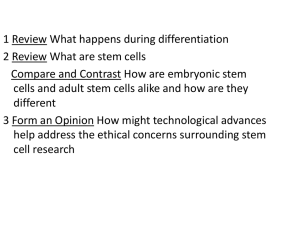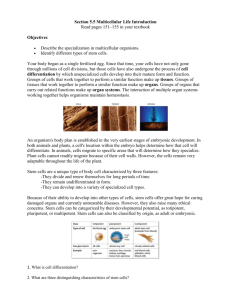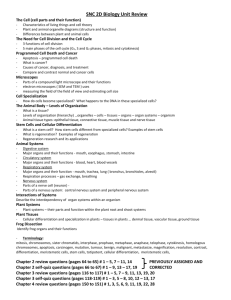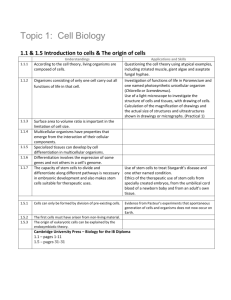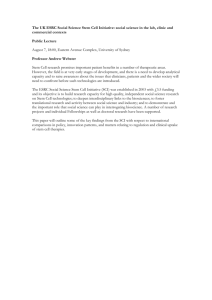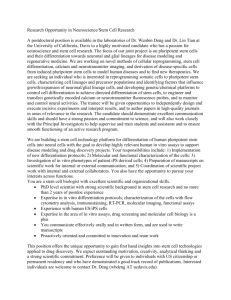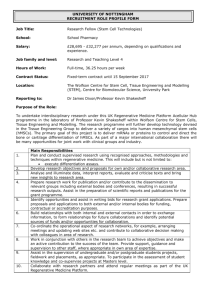Cellular Specialization & Differentiation Presentation
advertisement
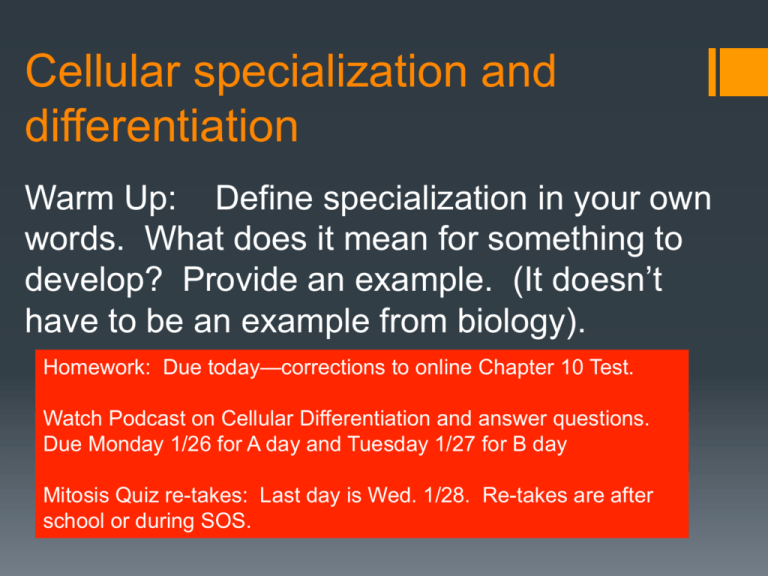
Cellular specialization and differentiation Warm Up: Define specialization in your own words. What does it mean for something to develop? Provide an example. (It doesn’t have to be an example from biology). Homework: Due today—corrections to online Chapter 10 Test. Watch Podcast on Cellular Differentiation and answer questions. Due Monday 1/26 for A day and Tuesday 1/27 for B day Mitosis Quiz re-takes: Last day is Wed. 1/28. Re-takes are after school or during SOS. Objectives: § Describe the process of differentiation. § Define stem cells and explain their importance. § Identify the possible benefits and issues relating to stem cell research. Differentiation: the process through which cells become specialized for specific functions Plants have 3 major tissue types each with specialized cells Photosynthesis Sugar storage Material transport (minerals and water) Organization of Life Can a single celled organism ever act like a multicellular organism? A. Yes B. No Cell type: Neuron Cell type: Immune System Work in lab groups at the benches: § You will find modeling dough on the benches. § Research your assigned cell type. § Make a model. Pay attention to how the structure of the cell gives function to the cell. What tissue does your cell build? § You will present your model to the class! Cell specialization in the human body is usually due to: § A. Different cells exhibiting different patterns of gene expression. § B. Different cells containing different and unique DNA sequences. Development…. Stages of development Stem cells are present in the blastula An embryonic stem cell has the potential to become any other type of cell. This cell type is TOTIPOTENT! Can anyone guess what this embryo is turning into? http://ktla.com/2014/11/18/ucla-stem-cellresearcher-cures-children-with-bubblebaby-disease/ Promise and potential…

